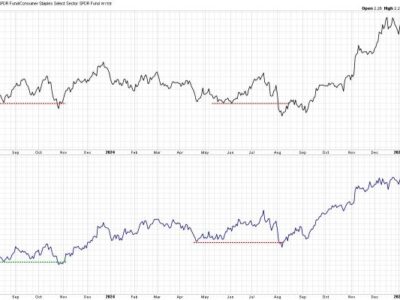
The Fiscal Commission Act is a Promising Start
“It’s time for a bipartisan fiscal commission,” writes the Committee for a Responsible Federal Budget (CRFB). I couldn’t agree more. Congress and the executive should empower a fiscal commission with real authority to stabilize debt as a share of the economy and address the unsustainability of Medicare and Social Security.
Federal debt and high interest rates are squeezing economic growth. Higher interest rates, unsustainable health care cost growth, and unfunded Social Security benefits further threaten Americans with more than $110 trillion in additional borrowing over the next three decades—an amount more than four times the size of the already excessive public debt ($26 trillion). Meanwhile, some market analysts are suggesting that investors driving up Treasury bond yields are doing so to convince Congress to address deficits and debt before the United States suffers a more severe fiscal crisis.
A fiscal commission can resolve America’s predictable fiscal decline, but only if it has the power to act. The CRFB explains that “[h]istorically, commissions have helped policymakers to extend the life of Social Security, consolidate military bases, identify government waste, develop frameworks for tax reform, improve homeland security after 9/11, and draw attention to our unsustainable fiscal outlook.” Time is running out for Congress to merely draw attention to America’s rapidly deteriorating fiscal state. We need action and soon.
The House of Representatives recently voted on the Fiscal Commission Act of 2023. Introduced by the chairs of the Bipartisan Fiscal Forum, Representatives Bill Huizenga (R‑MI) and Scott Peters (D‑CA), this proposal would establish a sixteen‐member fiscal commission, composed of twelve lawmakers and four independent experts, with all members appointed by House and Senate leadership from both parties.
Its charge: to stabilize the debt at no more than 100 percent of GDP (gross domestic product, the main measure of economic activity) within 10 years, by addressing the growth in direct spending (so‐called mandatory programs, including major entitlements), and narrowing the gap between projected federal expenditures and revenues over the long‐term. There’s also the suggestion that any changes to programs that are governed by trust funds (Medicare, Social Security, Highway) should improve 75‐year solvency.
If a simple majority of the commission members (including at a minimum three legislators from each party) were to agree on a proposal, its recommendations would be expeditiously considered in Congress. More specifically, legislators from both chambers would have to affirmatively vote for the recommendations to go into effect, and would do so without consideration of amendments or points of order, and under expedited procedures, which limit debate time.
I’ve written previously that a critical function of an effective fiscal commission is to provide legislators with political cover for making fiscally necessary, and yet politically unpopular, changes to entitlement programs. Given that Medicare and Social Security’s long‐term unfunded obligations (the difference between projected spending and revenues over the next 75 years) jointly make up 95 percent of the federal government’s entire unfunded obligation, there’s simply no way out of the debt crisis without tackling unsustainable entitlement spending. Medicare spending grew by 18 percent and Social Security spending by 11 percent this fiscal year (FY 2023).
Most constituents haven’t yet caught on that their beloved entitlement programs are the main culprits in driving the country toward a debt crisis. And that’s the catch. How to stay in office and reform entitlement programs?
A fiscal commission will likely be most effective in providing Congress with the necessary political cover if legislators are removed from commission proceedings and don’t have to take a public vote to enact the commission’s recommendations. The Base Realignment and Closure Commission is a model example for enacting politically difficult changes by letting Congress off the hook.
The Fiscal Commission Act of 2023 is a promising start but risks suffering a similar doomed fate as fiscal commissions of the recent past. To increase the chances of a fiscal commission succeeding, Congress should consider strengthening provisions in the Fiscal Commission Act in two main ways:
Independent experts should make up a majority of commission members. If legislators insist that the commission must include members of Congress, they should flip the current approach on its head by designating twelve independent experts and four legislators to compose the commission (or some combination that ensures a simple majority of outside experts). Legislative participation can provide valuable insights and oversight to commission proceedings, without potentially undermining the prospects of effective reforms that could prove unpopular with voters.
The commission’s recommendations should go into effect with silent approval from Congress. Instead of requiring legislators to take an affirmative vote before commission recommendations may be implemented, Congress should be able to reject the commission’s proposal in full, without amendments. The default option should be adoption, after presidential approval, unless Congress passes joint resolutions of disapproval in both chambers. Washington Post columnist George Will calls this “the Odysseus measure.”
The rising tide of support for a fiscal commission in Congress is encouraging. Seeing legislators put pen to paper and propose an actual fiscal commission, as Representatives Bill Huizenga (R‑MI) and Scott Peters (D‑CA) have done, is a good first step. Congress should build on this success by ensuring that any fiscal commission they establish has a high potential for success. We can’t afford to waste any more time with a fig‐leaf proposal that will end in yet another failed commission. This time, Congress should empower a fiscal commission with real authority.








